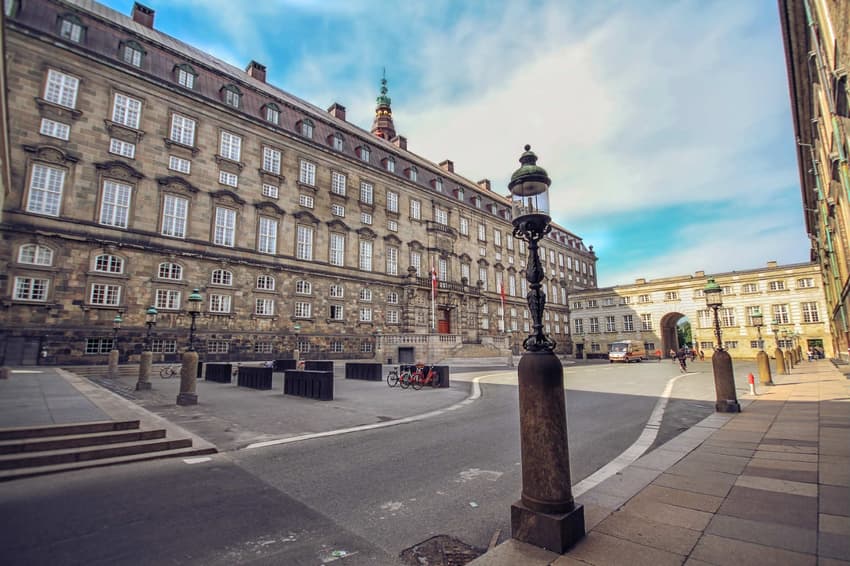Danish parliament puts new foreign spouse law on hold

The Venstre (Liberal) Party, the biggest party in Denmark’s coalition government, has postponed talks on a new law enabling spouses of foreign-based Danes to move to the country, citing the emergence of “new solutions.”
Parliament has cut short negotiations on a law proposal that would make it easier for well-paid, foreign-based Danes to move back to the country with their spouses.
It was Venstre that called for the halt in negotiations, reports news agency Ritzau.
The law change was proposed by immigration minister Inger Støjberg.
“We have a few corners we need to look at in the proposal, which we need to spend some time on,” the minister told Ritzau.
The challenge faced by the government is related to a decision last year by the European Court of Human Rights, Støjberg said.
The so-called 26-year-rule discriminated against Danes who were born in the country or arrived at a young age, for example as refugees, but were not granted citizenship until later, ruled the ECHR.
This led to the 26-year-rule being scrapped. All mixed-nationality couples where the non-Danish partner does not hold EU citizenship must now fulfil the Danish “attachment requirement” (tilknytningskravet) after a the 26-year rule, which exempted Danes holding citizenship for 26 years or more from their partners being subject to the attachment rule, was abolished by the ECHR ruling.
READ ALSO: 'Leave country by June 10th': Denmark to American wife of astrophysicist
Støjberg’s new law would have seen this requirement softened for foreign-based Danes earning over 408,000 kroner ($60,000) per annum or whose job were on a special list.
But experts warned last week that the new law could also be ruled as being discriminatory.
Parliament’s decision today now looks like putting any changes to requirements on hold for the time being.
“We are working very hard to find a good solution, but I have to say that any solution we find now will be of a temporary nature,” Støjberg told Ritzau.
READ ALSO: Expats attend Copenhagen demonstration against residency curbs
Comments
See Also
Parliament has cut short negotiations on a law proposal that would make it easier for well-paid, foreign-based Danes to move back to the country with their spouses.
It was Venstre that called for the halt in negotiations, reports news agency Ritzau.
The law change was proposed by immigration minister Inger Støjberg.
“We have a few corners we need to look at in the proposal, which we need to spend some time on,” the minister told Ritzau.
The challenge faced by the government is related to a decision last year by the European Court of Human Rights, Støjberg said.
The so-called 26-year-rule discriminated against Danes who were born in the country or arrived at a young age, for example as refugees, but were not granted citizenship until later, ruled the ECHR.
This led to the 26-year-rule being scrapped. All mixed-nationality couples where the non-Danish partner does not hold EU citizenship must now fulfil the Danish “attachment requirement” (tilknytningskravet) after a the 26-year rule, which exempted Danes holding citizenship for 26 years or more from their partners being subject to the attachment rule, was abolished by the ECHR ruling.
READ ALSO: 'Leave country by June 10th': Denmark to American wife of astrophysicist
Støjberg’s new law would have seen this requirement softened for foreign-based Danes earning over 408,000 kroner ($60,000) per annum or whose job were on a special list.
But experts warned last week that the new law could also be ruled as being discriminatory.
Parliament’s decision today now looks like putting any changes to requirements on hold for the time being.
“We are working very hard to find a good solution, but I have to say that any solution we find now will be of a temporary nature,” Støjberg told Ritzau.
READ ALSO: Expats attend Copenhagen demonstration against residency curbs
Join the conversation in our comments section below. Share your own views and experience and if you have a question or suggestion for our journalists then email us at [email protected].
Please keep comments civil, constructive and on topic – and make sure to read our terms of use before getting involved.
Please log in here to leave a comment.